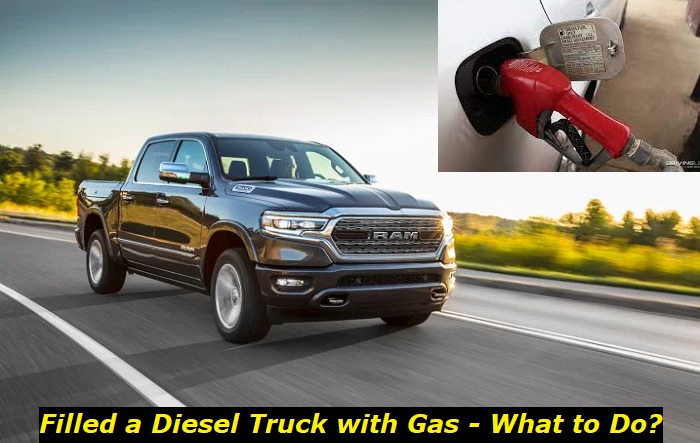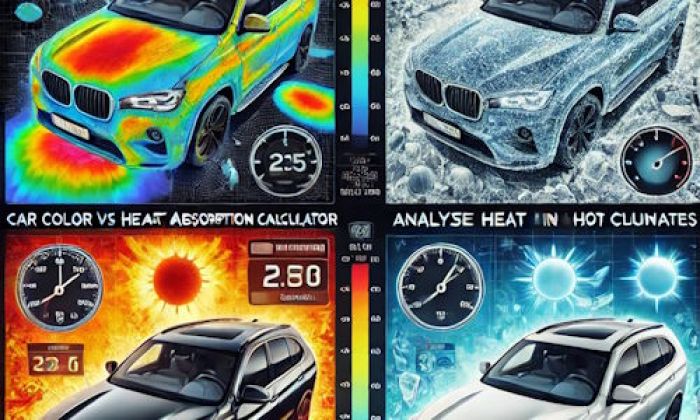Filling up a diesel tank with gasoline is a mistake anyone can make, especially if you own a diesel truck and a gasoline vehicle. The risk of fueling absent-mindedly is an issue of concern to many vehicle owners and drivers. You drive through a gas station and accidentally stop at the wrong pump, fill up your tank, and just when you want to drive away, you realize you filled it up with the wrong fuel.
Engine use mistakes highlights
- Level of importance:important
- When done:just driving, DIY repairs, DIY maintenance
- Cost of mistake:$200 - $4,000
- How to avoid:read driver's manual, learn how to drive safely, use professional repair andmaintenance
- Consequences:fatal engine issues, expensive breakdowns
- DIY solutions:sometimes possible

The Difference between a Diesel and Gasoline Engine?
Diesel and gasoline engines are all internal combustion motors. Both burn fuel to generate the power that makes your vehicle move. The primary difference between these two is their process of combustion. While gasoline requires a spark plug to create the spark that ignites the fuel, diesel engines burn fuel using pressure and temperature. Diesel motors require high pressure to ignite the fuel.
Additionally, diesel acts as both fuel and lubricant. The engine relies on diesel fuel to lubricate its fuel injectors and other internal components. These variations change the way fuel behaves in each engine.
My Wife Put Gas in Diesel Truck - What are the Consequences
Although gasoline is cheaper than diesel, it does not save you money using it instead of diesel. Gasoline can kill your diesel engine instantly and cost you thousands in repairs. If it accidentally happened, you will need a tow truck to take your vehicle to the mechanic. The mechanic should drain the gasoline from your fuel tank and engine system to the last drop.
By fueling your diesel tank with gasoline, you throw your engine's fuel molecular off balance and reduce its flashpoint instantly. This results in premature ignition and potentially severe damage to the engine.
Here is what happens if you fill your diesel tank with gasoline.
1) It Changes Fuel Flashpoint
Putting gas in a diesel tank lowers the flashpoint of your fuel in an instant. As these fuels mix inside the engine system, the altered flashpoint spreads through the engine. The result is massive gasoline pockets within the system that can severely damage your machine due to premature ignition.
2) There Will Be No Ignition
The first noticeable consequence of mistakenly fueling a diesel tank with gas is that it will not ignite. Your truck will not start, or you will have difficulties doing it. The explanation for this behavior is relatively straightforward.
From the factory, the engineering process of gasoline ensures that it will not ignite automatically. There has to be a force that assists the ignition of the gas. It cannot ignite unless your system meets some circumstances, one of them being the electric burst created by the spark plugs. Moreover, this electric wave has to happen on time for proper ignition to take place.
If your diesel engine has a glow plug, gasoline will not ignite. However, if there is some diesel left in the system, the engine may ignite, but the damage it will cause will be unfathomable.
3) No Lubrication in the Engine
Diesel is thicker than gasoline and has lubricating abilities that help to lubricate the engine's internals; unlike gasoline, which is more like a solvent, diesel functions as both fuel and lubricating oil.
It lubricates the engine's internal components as it flows through the system. Now, imagine filling up your diesel tank to the brim with gasoline. It starves your engine of lubrication, causing internal parts to damage each other as they rub and collide. This consequence leaves you with irreversible engine damage.
4) Severe Damage to the Diesel Fuel System
Filling up your diesel tank with gasoline does not only damage the engine, but also it could cause severe damage to the fuel delivery system. This system comprises the fuel pump and injectors, and fuel filters that should only handle diesel fuel.
The diesel fuel delivery system depends on diesel for lubrication, which gasoline does not have. Having gas in the system starves these sensitive components of lubrication. As a result, you may have to replace every one of these parts.
5) Irreversible Damage to the Engine
Every engine, be it a vehicle or any other mechanical machine, comprises several moving parts, some of which are pretty close to the combustion area of the engine. Components, such as the pistons, connecting rods, wrist pins, and others, could suffer if you filled your diesel fuel system with gasoline and ignited it.
Although gasoline cannot ignite in a diesel engine, it might ignite if you keep trying. Unfortunately, diesel engines do not have the strength to withstand the explosive ignition of a gasoline engine. Diesel ignites gently and smoothly.
When you force gasoline to ignite in a diesel engine, it creates an explosive shock wave strong enough to destroy the reciprocating components of the diesel engine. With every aspect in consideration, your engine could quickly end up in a junkyard.
6) Irreparable Damage to the ECU
As your engine strains to adjust to the strange fuel in its system, it loses power and performance. As a result, the Engine Control Unit and all the computerized systems will overheat and suffer irreparable damage. Moreover, as the engine tries to burn gasoline, your truck's exhaust system will emit massive black smoke. From the inside, this smoke leaves all the sensors covered in black soot and unable to detect anything.
What Should We Do to Save Our Truck from These Consequences?
Now that you know what could happen to your truck, follow these steps to minimize the possible damages.
- Do Not Turn the Key
The first thing to ask if your wife calls with this bad news is, "have you started the truck?" The best-case scenario is that she has not. If she has, tell her to kill the engine immediately. It is better to inconvenience other gas station customers than to kill your truck trying to keep the queue moving.
If you did not catch the error in time and are already rolling down the road, stop the vehicle immediately and stop the engine. This will minimize the amount of damage your engine could suffer.
- Tow the Truck to your Mechanic for Draining
The next thing is to call a tow truck to ship the vehicle to your mechanic. Ensure that your local trusted mechanic is available. You may reach out to your insurer to arrange a tow truck. If your car is large and requires special accommodation, the tow truck will be with you within the hour.
Once at the repair shop, ensure your mechanic understands diesel engines and can deal with this issue effectively. Although some discussion forums say you can do the draining in your home garage, engaging a professional mechanic is the best option.
Mechanics have the expertise to ensure they do not leave any drop of gasoline in your diesel fuel system. Research shows that as low as 1% gasoline contamination can lower diesel flashpoints by 18 degrees F. A mechanic will also check how much damage your truck suffered before you notice the mistake.
For Future Sake
Pumping gasoline into your diesel truck could be a costly mistake, especially if you do not realize it until you are too late. Most fuel stations have bright green handles for diesel. Even without checking the color, every nozzle has a marking showing the type of fuel it dispenses.
If you own gasoline and diesel vehicles, you can mark your fuel caps to avoid confusion at the fuel station.
To Conclude
Mistaking gasoline for diesel is not the end of life. You must notice the mistake early enough to save your truck from severe damage. Moreover, a fuel station has many pumps; never fuel in a hurry because there is a customer at your tail. Always take your time to ensure you do not make this mistake.
We hope that this piece saved your truck. If it did, let us know in the comment section, and subscribe for updates.
About the authors
The CarAraC research team is composed of seasoned auto mechanics and automotive industry professionals, including individuals with advanced degrees and certifications in their field. Our team members boast prestigious credentials, reflecting their extensive knowledge and skills. These qualifications include: IMI: Institute of the Motor Industry, ASE-Certified Master Automobile Technicians; Coventry University, Graduate of MA in Automotive Journalism; Politecnico di Torino, Italy, MS Automotive Engineering; Ss. Cyril and Methodius University in Skopje, Mechanical University in Skopje; TOC Automotive College; DHA Suffa University, Department of Mechanical Engineering






Add comment